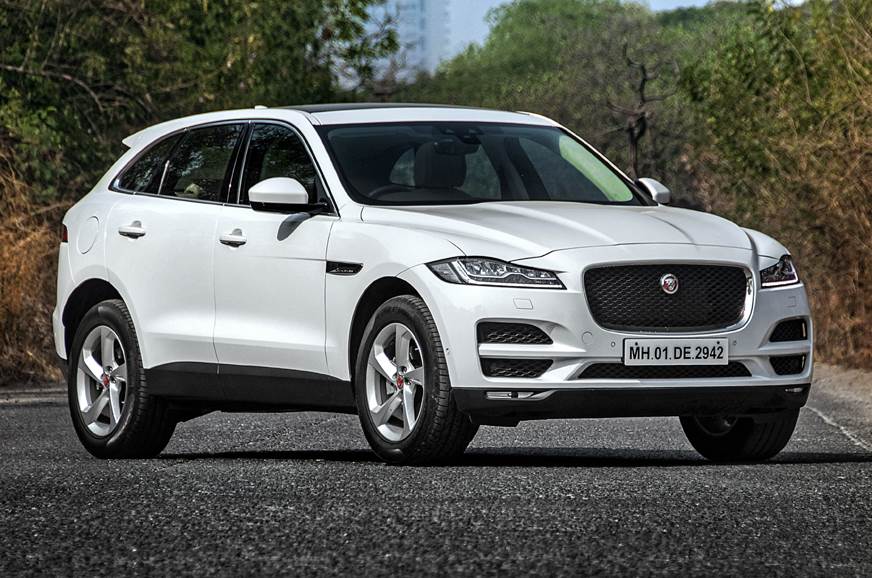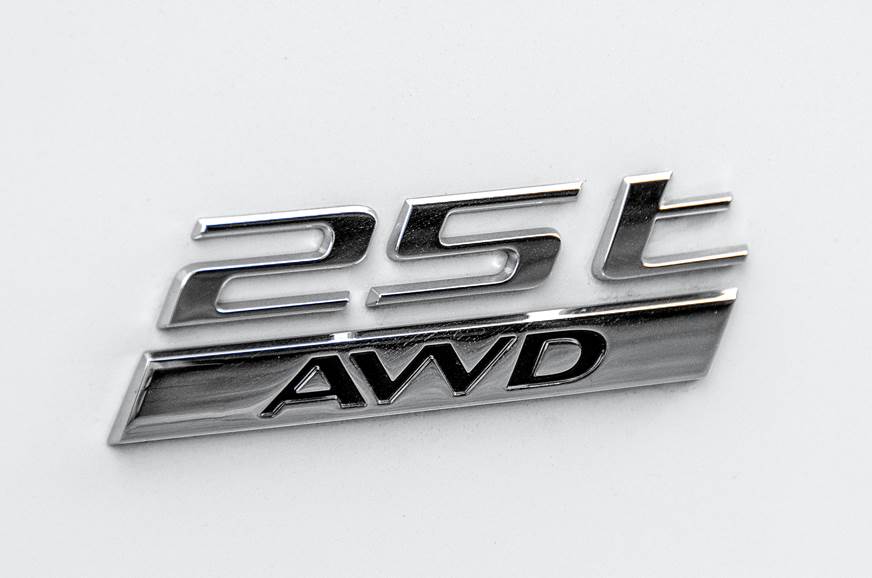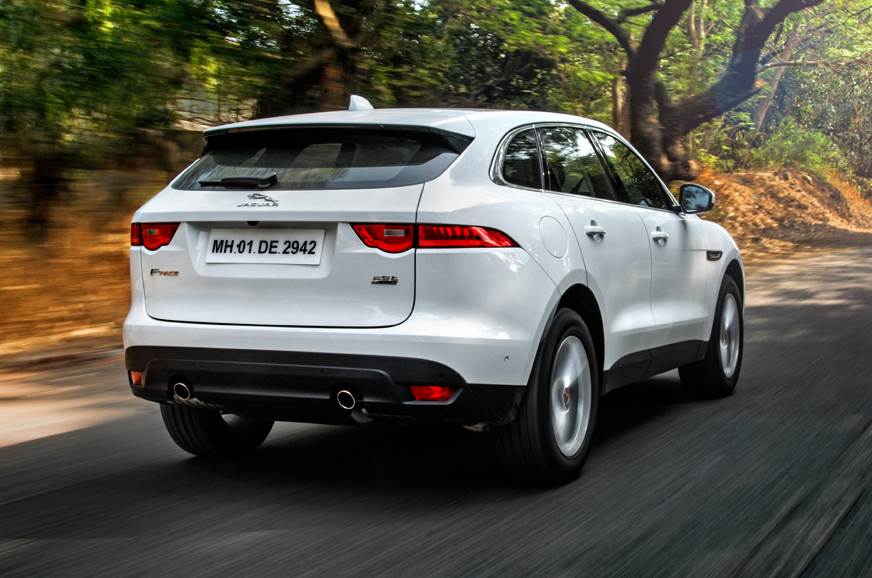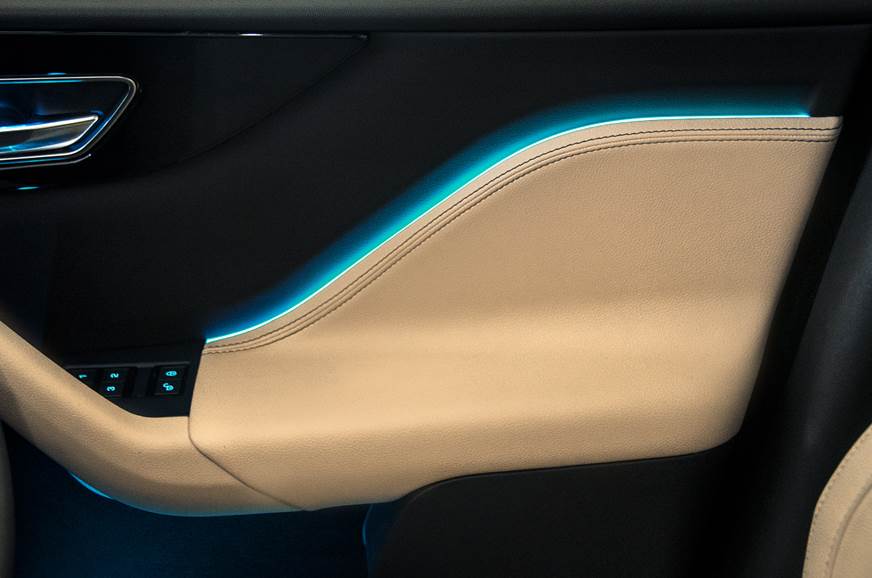WHAT IS IT?
The story of the Jaguar F-Pace in India has been fraught with ups and downs since the SUV’s launch back in 2016. The car we first drove was very impressive – particularly in its performance, thanks to a 300hp diesel V6 – but its 1-crore-plus price tag was hard to swallow and although the lesser four-cylinder diesel version was cheaper, you felt like you were getting a lot less car, too.
The issue, of course, was that it was a CBU import at launch; but then in November 2017, Jaguar announced that the F-Pace would be locally assembled. Not only did this drop the price-tag to a more palatable one (it slotted in just below Mercedes’ four-cylinder GLE, in fact) it also added more equipment to make it feel more luxurious. But this also spelt the end of the road for the mighty V6 diesel and though it was still a desirable and fun-handling SUV, the 2.0-litre diesel motor was a bit lacking in the ‘pace’ department.

So now there’s this, a 2.0-litre petrol – the same ‘Ingenium’ turbocharged four-cylinder unit with 250hp and 365Nm of torque that debuted in the Range Rover Velar and has since been added to the XE and XF. In this day and age, where people are once again becoming more accepting of petrol as a choice of fuel for their car – even their SUV – perhaps this might just be the powerplant this car always needed.
You should know that this 25t petrol is identical to the 20d diesel in every other respect, other than price – at Rs 63.17 lakh (ex-showroom) it’s actually Rs 40,000 cheaper. Both are available in the same Prestige trim variant and that gets you quite a lot of equipment, including goodies like a digital instrument cluster, adaptive LED headlamps, a panoramic sunroof, selectable LED ambient lighting, a 10.0-inch touchscreen, 380W Meridian hi-fi audio, lane-keeping assist and four-zone climate control. I also like that they went with 19-inch wheels and not 18-inchers, which do wonders for the aesthetics.

Things I’m not a fan of? The powered seat adjustment is quite limited, a powered tailgate would have been a nice feature inclusion, the ambient interior lighting is not very well executed in places, and some plastics could’ve been better, but that’s about it.
WHAT’S IT LIKE TO DRIVE?
In a nutshell, this new engine is far better suited to this car than the lazy 2.0-litre diesel ever was. Right from the quicker responses off the line, to the strong mid-range, to a greater willingness to rev; it’s far more enjoyable in just about every situation. It’s also noticeably quicker – 0-100kph comes up in a claimed 7sec – 2sec quicker than the diesel. And it feels that way too, pulling strongly right from the word go and making light of this car’s big mass.
There is a small issue of the 8-speed auto gearbox that can sometimes fumble and be a bit jerky at low speeds. It happens when you tap the throttle suddenly from a standstill, or at lower speeds, and it turns what might’ve been slightly lazy progress into a noticeable hiccup. The rest of the time, however, the gearbox is a dream – shuffling away between ratios smoothly and seamlessly.

There is a Dynamic mode that sharpens engine responses and firms up the steering, but what really helps is when you also put the gearbox in ‘S’. This locks the engine at higher revs, so the turbo lag is less of an issue, and the F-Pace is always raring to go. The downside of this, of course, is that fuel economy takes a hit, but if that’s what you’re after, there’s an Eco mode too that dulls responses to save petrol, but not enough to make driving a chore.
There is also the matter of sound. Right off the bat, this isn’t the most refined petrol engine on the market, and you’ll notice that most when you first fire it up. There’s a bit of boom before it settles down to an idle, which is not loud but audible. On the move it’s not too bad; but then again, some rivals are quieter and refinement is one of the reasons you’d pick the petrol variant of any car. It all comes good, however, when you start extending the motor a bit – and past 3,000rpm especially, it sounds throaty and fantastic! A sporty engine note is not likely to be high on the priority list of a luxury SUV buyer, but once you hear it, you’ll be goaded to push the car a little harder.

Which brings us neatly on to the dynamics, and the F-Pace remains one of the best-handling crossovers on the market. This is particularly impressive, given its not-insignificant size, and we put it down to a very well-calibrated suspension and steering. There are no adaptive dampers, but electronic aids like torque vectoring via braking work silently in the background to aid agility. Body roll is superbly contained, and the steering is sharp and tactile. Yes, the ride is a little on the firm side and you will get moved around a bit over smaller, sharper bumps – but it’s never to the point of being uncomfortable.
SHOULD YOU BUY ONE?
In just over three years, the F-Pace has gone from being a pricey and slightly unexciting offering to being one of the most enticing in and around its price segment. This holds particularly true if you enjoy driving – and then there’s the fact that it is rather stunning to behold. It was sad to see the 3.0-litre V6 diesel removed from the range – especially since the 2.0-litre diesel is a bit underwhelming – but this petrol engine is the perfect antidote for those who want performance that lives up to the looks and the chassis. The best part is that the F-Pace retains the aggressive pricing of the diesel and even though some things about the F-Pace are not perfect, you do get quite a lot for your money.
While India waits for the next-gen versions of the (now quite long-in-the-tooth) Mercedes-Benz GLE and BMW X5 to arrive, this new engine could be the perfect reason for people to revisit a stylish, fun-to-drive British luxury SUV they might have passed on earlier.
[“source=autocarindia”]